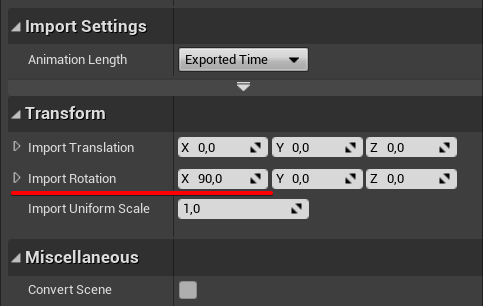Export to Unreal Engine
- Home
- Getting Started
- Export FBX/DAE
- Export to Unreal Engine
Animations for UE4 Mannequin
Animations created in Cascadeur can be imported to an Unreal Engine 4 project and attached to a skeleton there.
Note
If you are using the default Epic Skeleton in your project, we recommend using UE4_SK_Mannequin.casc file for creating animations in Cascadeur. Other models included in the package have significantly different skeletons, which might lead to compatibility issues.
1. Right-click the Content Browser window

2. Select Import to... from the menu
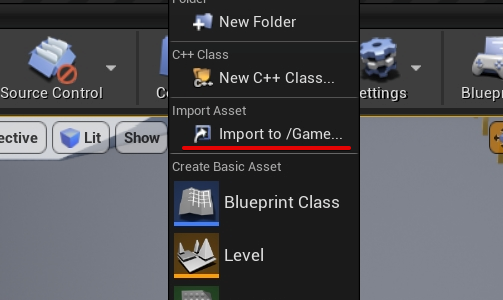
3. Select the file containing your model
The file should be in binary FBX format. See here about formats
4. The FBX Import Options window will appear

5. Set Skeleton to UE4_Mannequin_Skeleton

6. Disable Import Mesh
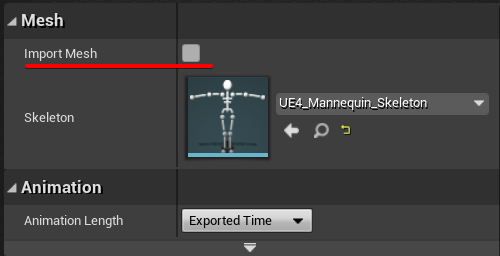
7. Disable Convert Scene

8. Click the Import button

9. An Animation asset should be created

Import Cascadeur Characters
To use custom characters, you need to first import the character model and then animations for it.
Import Model
1. Right-click the Content Browser window

2. Select Import to... from the menu

3. Select the file containing your model
The file should be in binary FBX format. See here about formats
4. The FBX Import Options window will appear

5. Set Skeleton to None

6. Disable Import Animations
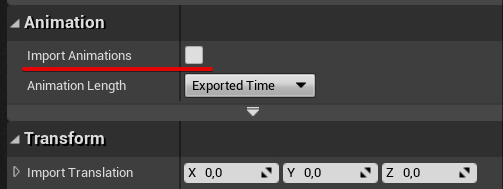
7. Enable Convert Scene
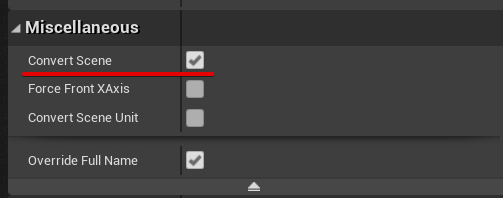
8. Disable Force Front XAxis
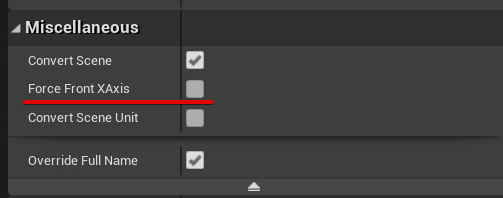
9. Set Material Import Method to Do Not Create Material (unless you want the material to be imported with the model)

10. Click the Import button

11. After importing, several assets should be created:
- a Mesh asset (contains imported model)
- a Physics Asset
- (optional) a Material asset (if you decided to import it)

Import Animation
1. Right-click the Content Browser window

2. Select Import to... from the menu

3. Select the file containing your model
The file should be in binary FBX format. See here about formats
4. The FBX Import Options window will appear

5. In the Skeleton window, select your custom skeleton
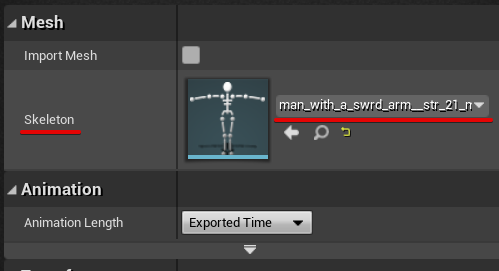
6. Disable Import Mesh
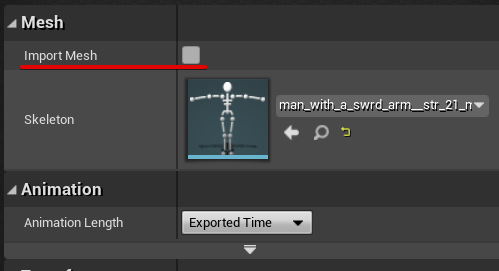
7. Disable Convert Scene

8. Disable Force Front XAxis
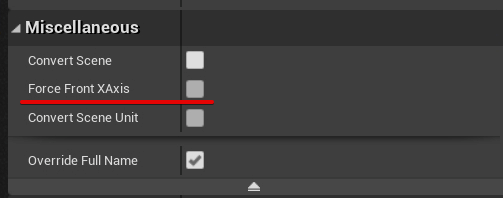
9. Click the Import button

10. An Animation asset should be created

Fixing Incorrect Rotation
In cases where models and animations are imported with incorrect rotations, there are two ways to fix this:
Set necessary rotations during import
1. In the Import window, set the Import Rotation values under the Transform panel

2. Proceed to import the model as described in the Custom Skeleton section
Note
There is no way to preview rotations set during import. You might need several attempts to figure out the exact rotations you need.
Reimport animations with correct rotations
1. In the content browser, double-click the animation in the viewer to open it
2. Set the necessary rotations
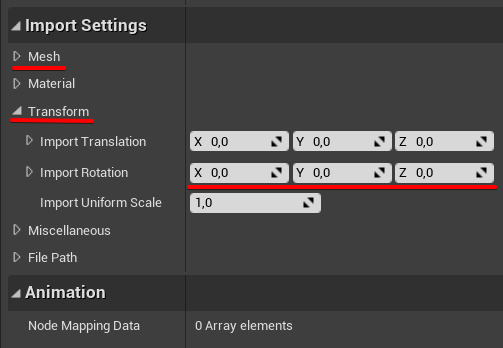
3. Save the model/animation
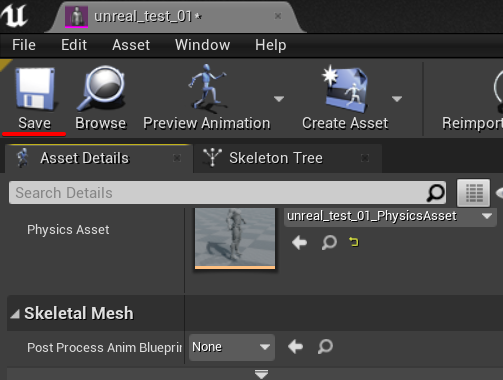
4. Close the viewer.
5. Right-click the model/animation asset and select Reimport from the menu

6. After this, the asset will be updated with the new rotations
Rotation axis should be manually chosen in each individual case

Here, for example, the character should be rotated by 90 degrees across X-axis:
